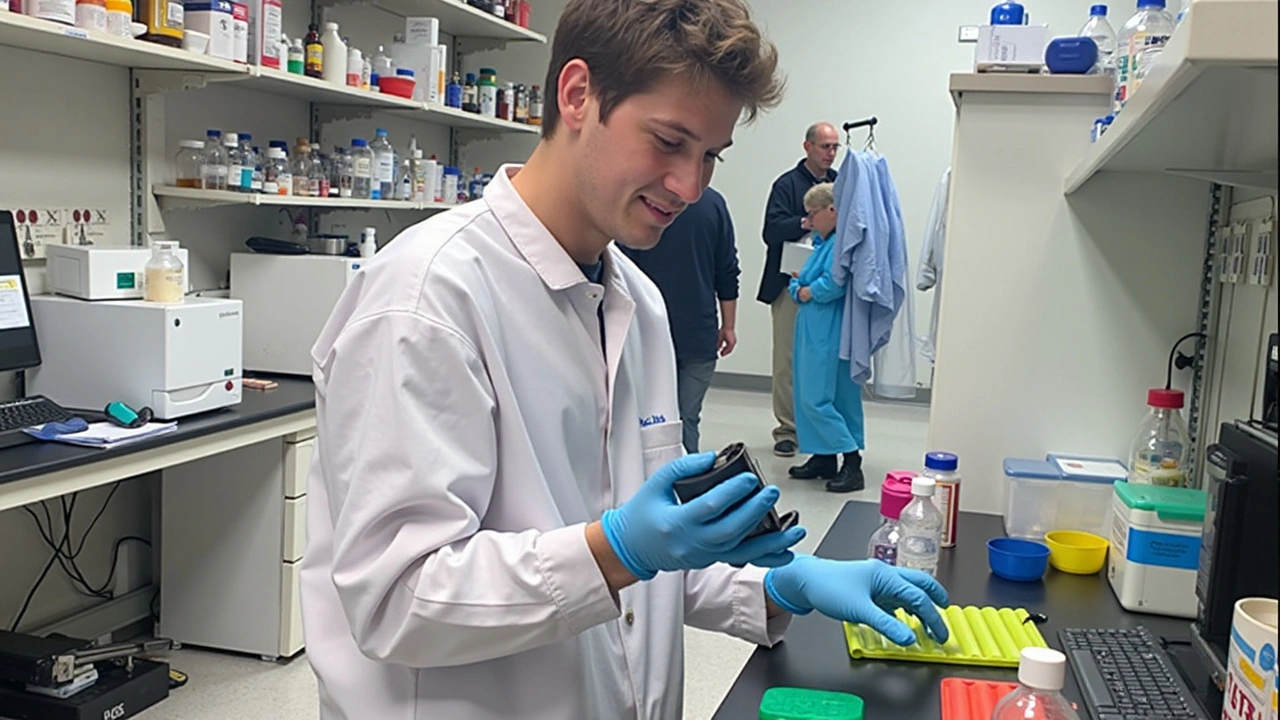Treponema pallidum — Quick Guide to Syphilis, Testing, and Treatment
Treponema pallidum is the bacterium that causes syphilis. It can show up in many ways, so people can miss it early. Early detection makes treatment simple and effective. Left untreated, syphilis may damage the heart, brain, eyes, and other organs years later.
How it spreads: the bacterium moves through direct contact with a syphilis sore during sex — vaginal, anal, or oral. Pregnant people can pass it to the fetus, leading to congenital syphilis. Casual contact like hugging or sharing cups rarely spreads it unless a mouth sore is present.
What to watch for: syphilis has stages. Primary syphilis often makes a single painless sore where bacteria entered the skin or mucous membrane. Secondary syphilis can cause a rash that sometimes involves the palms and soles, fever, swollen lymph nodes, sore throat, patchy hair loss, and flu-like symptoms. Latent syphilis has no symptoms but remains in the body. Tertiary syphilis, which can appear years later, may cause severe problems such as heart issues, neurological problems, or destructive lesions.
Testing and diagnosis
Testing is straightforward at clinics and community health centers. Providers commonly use a two-step blood testing approach: a screening non-treponemal test (RPR or VDRL) to detect active disease, followed by a treponemal test to confirm exposure. For visible sores, a direct swab with dark-field microscopy or PCR in specialized labs can identify the bacterium. If you expect exposure, tell the clinician about timing and symptoms so they can order the right tests.
Timing matters. Tests may be negative if done very soon after exposure. If you had recent exposure, get an initial test now and repeat it at 6 and 12 weeks or as advised. If you are pregnant, testing early in pregnancy and again later is crucial because treatment prevents serious harm to the baby.
Treatment and follow-up
Penicillin is the standard treatment. Early syphilis often clears after one intramuscular penicillin injection. Later stages need more doses spaced over weeks. If you are allergic to penicillin, doctors may use doxycycline or other antibiotics, but penicillin remains the preferred choice during pregnancy. Follow the exact treatment plan and keep all follow-up appointments.
After treatment, you need follow-up blood tests to confirm response. Sexual partners should be notified, tested, and treated if indicated. Avoid sex until treatment is complete and your provider confirms it's safe. Also ask about testing for HIV and other STDs, since coinfections affect care.
Practical tips
Bring a list of medications and recent sexual history to your appointment. Use condoms and get routine screenings if you have new or multiple partners. Beware of home remedies or unverified online cures. If cost or access is a barrier, many public clinics offer low-cost testing and treatment. If you want more reading, check our posts on coping with STDs and on safe online pharmacies for trusted medication sources.
If you're unsure where to test, call your local health department or search for sexual health clinics offering confidential, low-cost care.
